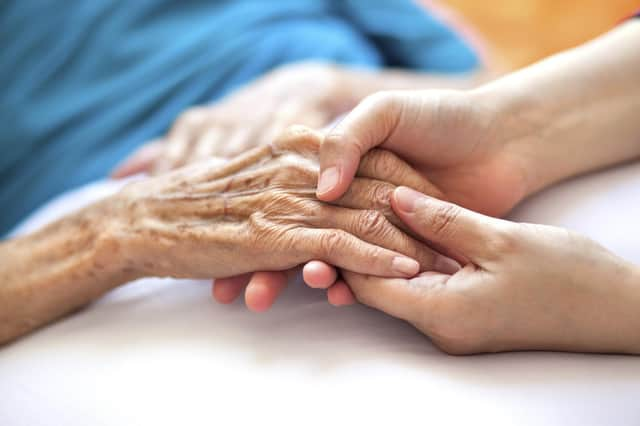Dementia: Getting a diagnosis can take longer for people with learning disabilities in Northern Ireland


Around one in five people with learning disabilities who are over the age of 65 will develop dementia. While those with Down’s syndrome have an even higher risk, with about two in three people over the age of 60 developing dementia, usually Alzheimer’s disease.
Alzheimer’s Society is sharing useful tips to help recognise signs and symptoms.
Advertisement
Hide AdAdvertisement
Hide AdAngelo Makri, Senior Knowledge Officer for Wellbeing at Alzheimer’s Society said: “You are likely to know the person that you care for best, which makes you well-placed to recognise subtle changes. This could include acting out of character or taking more time to carry out certain tasks. Any changes that you, or the person’s other carers, family or friends notice, can play an important part in helping to spot the early signs of dementia.
“If you notice ongoing changes rather than a one-off, tell the GP or learning disability team as soon as possible. They can arrange for the person to have an assessment designed to identify dementia in people with learning disabilities.”
Alzheimer’s Society have produced a free symptoms checklist, endorsed by the Royal College of GPs, to help people talk to their health professional to get a vital diagnosis. Symptoms include:
Changes in behaviour and personality.
Confusion or memory problems, including changes in mood.
Memory loss, asking the same question over and over or repeating phrases.
Advertisement
Hide AdAdvertisement
Hide AdEpilepsy or fits; if a person with Down’s syndrome in later life begins to have fits, or experiences them more than usual, this could be a sign of dementia.
Angelo Makri said: “A timely and accurate diagnosis is crucial to access treatment and support that can help people manage dementia symptoms and avoid ending up in crisis.
“If you or your loved one are worried about experiencing dementia symptoms, you should visit your GP. They will try to assess what’s likely to be causing the problem.”
Alzheimer’s Society is here for everyone affected by dementia. They provide accessible publications designed for people with learning disabilities which are available in Easy Read. Call their Dementia Support Line on 0333 150 3456 or visit alzheimers.org.uk for help and advice.
Comment Guidelines
National World encourages reader discussion on our stories. User feedback, insights and back-and-forth exchanges add a rich layer of context to reporting. Please review our Community Guidelines before commenting.